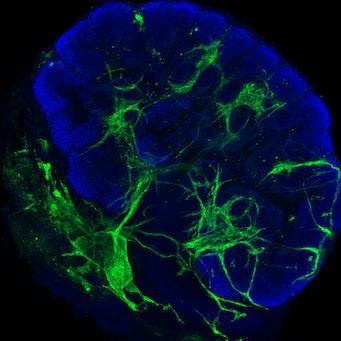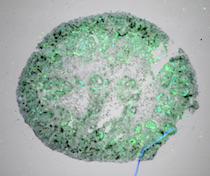Chronic kidney disease (CKD) affects approximately 26 million adult Americans, representing a significant health care burden. Allogeneic kidney transplant is an effective therapy for those suffering from end-stage CKD; however, over 120,000 Americans remain on waiting lists, indicating a need for alternative approaches to treating patients. Engineering kidneys ex vivo has the potential to address this need by directly generating functional tissue.
A major obstacle to generating ex vivo kidneys is the complexity of the organ, which consists of stromal, vascular, and interstitial cells, which grow and exchange reciprocal signals within a 3-dimensional matrix during development.
Our goal is to elucidate the molecular basis of endothelial cell (EC) crosstalk with stromal and tubule cells, and delineate how they impact kidney differentiation or proliferation.
We have identified several genes that are specifically expressed in the developing renal vasculature. Many candidate genes exhibit regional-specificity within the developing kidney, suggesting they could represent potential molecular targets.
 E 12.5 mouse kidney cultured for 3 days and stained with PECAM/endomucin and Six2
E 12.5 mouse kidney cultured for 3 days and stained with PECAM/endomucin and Six2  In situ hybridization with co-immunostain on mouse E15.5 kidney.
In situ hybridization with co-immunostain on mouse E15.5 kidney.